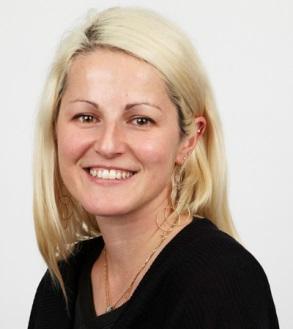Invited Plenaries
Prof Aida Habtezion
The Habtezion lab is based at Stanford University, California andaims to understand immune mechanisms and identify potential immune-based therapeutic targets for pancreatitis and inflammatory bowel disease. Her lab studies leukocyte trafficking and immune responses pertaining to the intestinal tract in states of both health and disease.
Dr. Habtezion obtained her medical degree from McMaster University, completed an Internal Medicine residency at the University of Western Ontario, a Gastroenterology Fellowship at the University of Toronto, and a post doctoral research fellowship at Stanford University. Her research is supported by foundation and National Institutes of Health grants.

Prof Christopher Heeschen
Prof Heeschen is currently working at the Lowy Cancer Research Centre at the University of New South Wales. He obtained his Medical Degree in 1997 from the Free University of Berlin (Germany) and his PhD in 2001 from Stanford University (USA). Prof Heeschen became an independent investigator in 2004 and in 2008 he moved to the Spanish National Cancer Research Centre (CNIO) as a founding member of the Clinical Research Programme. In 2013, he became the lead of the new Centre for Stem Cells in Cancer & Ageing at Barts Cancer Institute, London, UK. In March 2018, Prof Heeschen was recruited to UNSW under the SHARP program to establish his translational research programme at the Lowy Cancer Research Institute, Sydney. Building on his original discovery of pancreatic cancer stem cells and the heterogeneity therein, his lab is now working on newly identified key epigenetic and metabolic regulators of the stemness signalling network in cancer stem cells.
Prof Heeschen has published more than 150 articles in prestigious scientific journals such as the New England Journal of Medicine, Nature Medicine, The Lancet, Cancer Cell, Cell Stem Cell, Journal of Experimental Medicine, and PNAS, among others. His work has been cited more than 26,000 times (GoogleScholar). Prof Heeschen has made major original contributions to the field of stem and vascular cell biology that have advanced our understanding of the basic processes of stem cell function and trafficking. His research has been recognised through numerous international awards and has earned him an ERC Advanced Investigator Grant for pancreatic cancer research.

Invited International Faculty
A/Prof Max Petrov, University of Auckland (NZ)
Associate Professor Petrov is an expert in diseases of the pancreas, metabolism, and nutrition. His group, called COSMOS, is recognised internationally for cutting-edge research and is a leading provider of translational, clinical, and epidemiological research training in diseases of the pancreas in Australasia. Associate Professor Petrov's research programme has resulted in over 130 articles in international peer-reviewed journals indexed in PubMed. His publications have been cited more than 5000 times and consistently receive at least 500 citations per year since 2013. In addition, Associate Professor Petrov has leadership roles in a number of University’s committees, New Zealand national boards, and international societies. He is Associate Editor of the Clinical and Translational Gastroenterology- official journal of the American College of Gastroenterology with an impact factor of 4.6, ranked 15 out of 80 journals in Gastroenterology & Hepatology.

A/Prof Anthony Phillips
Anthony is an Associate Professor in the School of Biological Sciences (SBS) and the Department of Surgery at the University of Auckland in New Zealand. Currently he is the Academic Leader for the Biomedical and Applied Biology division in SBS as well as Director of the Applied Surgery and Metabolism Laboratory (ASML) in the Department of Surgery. The ASML is a cross-faculty research laboratory and training environment specifically dedicated to the support of surgeon’s undertaking PhD studies in basic science. In addition to this, Anthony has been involved with the preclinical and clinical development programs of new drugs within the biotechnology sector. He has research interests in the fields of pancreatitis, wound healing and lymphatic biology. His laboratory has a current research focus on multiple organ failure during severe acute pancreatitis.

National Faculty
Prof Minoti Apte, Ingham Institute, University of New South Wales (NSW)
A/Prof Phoebe Phillips, Lowy Cancer Centre, University of New South Wales (NSW)
Prof Brendan Jenkins, Hudson Institute, Monash University (VIC)
Prof Marco Falasca, Curtin University (WA)
Dr Thomas Cox, Garvan Institute of Medical Research, Kinghorn Cancer Centre (NSW)
Dr Lorraine Chantrill, Garvan Institute of Medical Research, Kinghorn Cancer Centre (NSW)
Dr Hong He, Department of Surgery, University of Melbourne (VIC)
Organiser
Dr Marina Pajic
Dr Marina Pajic is a CINSW Career Development Fellow and Laboratory Head at the Garvan Institute. She has developed Australia’s largest bank of genomically profiled patient-derived models of pancreatic cancer as a platform for comprehensive pre-clinical screening of novel therapeutics. Her research focus is on the characterisation of molecular mechanisms that drive cancer progression, metastasis and treatment failure, to develop more effective, tailored treatment strategies for pancreatic cancer.


